The holiday season often brings the spirit of giving and celebration. Expenses can quickly add up between gifts, decorations, and festive meals. After you take down your Christmas tree and clear the turkey from the table, you might face some less festive aftermath—credit card holiday debt.
Recovering from holiday-related spending can be challenging. However, careful planning and the right strategies can get your finances back on track. Finding ways to pay off debt, getting professional help, and avoiding debt the next year are crucial steps toward financial stability.
Here’s our guide full of practical solutions to help you recover from the holiday spending blues and regain financial stability.
Americans and Holiday Credit Card Debt
Department stores are full of shoppers in the weeks before the holidays, and roads are lined with delivery drivers. A desire to be generous often leads to shopper debt. Almost a third of American adults go into debt every year to afford all the holiday expenses.
Approximately 37% of people who expect to go into debt over the holidays predict it will take them two or more months to pay it off. Accumulating debt can become overwhelming if you don’t have the knowledge on how to pay it off quickly or even avoid it altogether.
How to Prevent Holiday Debt
The best way to prevent accumulating holiday debt next year is to plan ahead now. These 11 debt-free holiday tips will make all the difference. Come the time of snow and Santa, you’ll be able to avoid the stress of overspending.
1. Set Spending Limits
Be realistic about what you can afford. Set a firm budget for gifts, decorations, food, travel plans, and festivities. Don’t forget the sneaky expenses that quickly add up, like wrapping paper, bows, and extra baking supplies.
Once you have a budget, stick to it. Ask a friend or family member to help you stay accountable for your spending totals. This accountability helps prevent impulsive purchases and keeps your spending in check.
2. Be Smart While Shopping
Take advantage of sales throughout the year, not just during the holiday season. This effort can spread out spending totals and reduce the end-of-year financial burden.
Set aside a large box in your home and collect presents throughout the year as sales pop up. When the festive season rolls around, wrap them, and you’ll be ready without racking up a lot of extra holiday debt.
3. Use Cash Instead of Credit
If you’re prone to overspending on a credit card, use cash or debit cards for holiday purchases. Take out the amount of cash you can spend from your bank account. Keep it in an envelope and use it exclusively for holiday shopping.
This effort can help keep spending within limits, as it’s harder to overspend with physical money than with credit cards.
4. Embrace the DIY Lifestyle
Getting creative with do-it-yourself (DIY) decorations and gifts can save a lot of money. It’s the perfect opportunity to learn to knit, woodwork, or paint.
Handmade gifts add a personal touch and can be more meaningful than store-bought items. Involve your family in making holiday decorations, which can be a fun and cost-effective activity. Who knows, decorating your own ornaments or stringing popcorn garlands may even become a new holiday tradition.
5. Compare Prices
Before making a purchase, take the time to compare prices online. Other websites or retail stores may have new deals that could significantly alter the regular prices. Taking five minutes to compare costs could potentially save you hundreds of dollars.
6. Take Advantage of Cashback and Rewards
If you have a rewards credit card or are part of a cashback program, the holiday season is a great time to take advantage of these benefits. Your normal holiday spending could earn you some money back, which you can use on other household essentials. Just make sure to pay off the balance promptly to avoid interest charges.
7. Set a Party Limit
Consider setting a limit on gift exchanges within your family or circle of friends. You could also save some money by suggesting a Secret Santa or White Elephant gift exchange, where each person only has to buy one gift within a set budget.
8. Cut Back on Hosting
Hosting gatherings with loved ones can get expensive, especially when adding up the costs of food, decorations, and gifts. This year, consider a potluck-style gathering where each guest brings a dish instead of hosting a full feast and taking on the financial responsibility.
If your home is the usual gathering place, suggest someone else take on the burden of hosting the family get-together so your pocketbook can get a well-deserved rest.
9. Choose Free Activities
Look for free or low-cost holiday activities in your community. You can find many inexpensive holiday activities like:
- Free community concerts
- Light displays
- Community or mall visits from Santa
- Creating snow sculptures
- Caroling
- Window displays in local shops
You can still enjoy the magic of the holidays without having to spend extra money.
10. Shop Post-Holiday Sales
For decorations or presents you can use next year, shop post-holiday sales. Prices drastically drop after the holidays, and you can find great deals for the following season. Planning ahead now could save you from going into debt next year.
11. Reduce Costs Throughout the Year
Little expenses can add up quickly. Trying to cut back all year could help you save up extra cash to spend on holiday gifts.
To save here and there, try things like:
- Comparing internet or wireless providers to reduce your monthly bill
- Cutting back on takeout and dining out, drinks, or treats
- Canceling any subscriptions you aren’t using regularly
- Shopping at thrift stores instead of retail
- Fixing things when they break instead of replacing them
Implementing these 11 tips to avoid holiday debt can help you enjoy a festive and financially stress-free holiday season. Remember, with a little planning and creativity, you can celebrate in style without compromising your budget.
If you feel spending has become more than just a fun pastime, check out our blog on shopping addiction and pathways to financial recovery.
6 Steps to Pay Off Holiday Debt Quickly
If you’ve already drained your accounts and the holiday season is coming to a close, you don’t need advice on preventing debt. Instead, information about how to pay off holiday debt will be more helpful.
After accumulating holiday debt, the most important step is figuring out how to pay it off. It’s not always easy if you don’t have a significant income stream, so take any steps possible to reduce the total amount you owe.
1. Start by Taking a Full Financial Inventory
Sit down and take the time to record:
- All your debts
- All sources of income
- Balances of all bank accounts
2. Make a Budget
Create two columns. On one side, record your income, and on the other, write down common recurring expenses, such as:
- Rent or mortgage payment
- Groceries
- Utilities
- Transportation costs
- Memberships or subscriptions
Then, note your debts and how much you owe in minimum monthly payments. Deicide where your income from the first column will go. Prioritize your essential living expenses and use the remaining incoming cash to pay off your debts.
3. Cut Back on Non-Essentials
You should cut back in other areas to quickly save money and pay off debts. Your regular morning coffee trip, takeout meals, or shopping trips may have to wait a while. Not having your favorite indulgences may feel frustrating, but making small sacrifices will help you pay off debts far faster.
4. Find Extra Income Streams
You may need more than your regular income to pay off your debts quickly. Instead of spending many months in the red, try to find new income sources. You could potentially make more money by:
- Securing a part-time job on the weekends or after your regular working hours
- Doing freelance work
- Selling items you no longer need
5. Prioritize High-Interest Debt
Debts with high interest rates will cost you more over time than those with lower rates. Make sure you pay off your high-rate debts first and work down from there.
6. Make Extra Payments
If possible, make more than the minimum payment on your debts to reduce them faster. However, some lenders penalize borrowers for trying to pay off debt faster than anticipated, so double-check the fine print before you increase your payments.
These steps will help you pay off your debts as early as possible without missing any payments. Remember to stick to your plan and call Debt Reduction Services at (866) 688-3328 when you need extra help.
How to Recover From Extreme Holiday Spending
Spending $50 more than your limit won’t hurt you much, but going hundreds or even thousands of dollars over could trap you in years of debt. Debt can become a slippery slope, so getting a handle on it as soon as possible is important. Here are four different ways to save yourself from spending years trying to pay off lenders.
1. Explore Credit Counseling
You don’t need to suffer in debt alone—some professionals have the training to help you. Credit counseling is a professional service that helps people in financial distress to better manage their debt and finances.
Credit counselors offer expert advice on budgeting, debt management, and credit improvement. A credit counselor can provide personalized guidance and support for those struggling with post-holiday debt, potentially performing the following tasks:
- Budget Analysis: Credit counselors start by reviewing your financial situation, including income, expenses, and debts, to develop a realistic budget.
- Debt Management Advice: They offer strategies to manage debt, from negotiating with creditors to minimizing interest payments.
- Credit Education: Counselors also educate on credit and financial management, helping to avoid future debt traps.
2. Seek Out Debt Educational Resources
Many experienced professionals provide educational resources to help individuals overcome debt privately. Examples of educational resources include:
- Budgeting calculators or apps
- Books about debt management
- Government websites such as the Consumer Financial Protection Bureau (CFPB) and USA.gov
- Podcasts from financial institutions or experts
- Workshops hosted by finance experts
These educational resources can help anyone develop better money management skills and successfully get out of deep debt.
3. Negotiate Your Credit Card Debt
Some credit card companies allow negotiation to reduce the amount you owe. Through careful and respectful negotiations, you could potentially alter your monthly payments, lower your interest rate, or eliminate fees.
This process can be tricky for those who haven’t negotiated debt before, so follow our guide, which will walk you through all the steps.
4. Consider a Debt Management Plan (DMP)
Debt management plans, structured plans created in partnership with a credit counseling agency, are highly effective in overcoming holiday debt caused by overspending. This type of plan consolidates unsecured debts (like credit card debt) into one monthly payment, often with reduced interest rates, lower monthly minimums, and waived fees. The agency you work with will help you set up a plan to pay off your debt within 3–5 years.
When you enroll in a DMP, the credit counseling agency communicates with your creditors on your behalf. They agree on lower interest rates and a fixed monthly payment that you can afford.
A structured repayment schedule gives you a clear timeline for paying off your debts. You’ll also be less likely to rely on new credit, preventing further debt accumulation.
To utilize these four debt recovery tools, start by researching reputable credit counseling organizations. Then, schedule a consultation to discuss your specific situation. If a DMP is recommended, ensure you understand the terms, fees, and impact on your credit score before signing an agreement.
Recover from Holiday Debt with Debt Reduction Services
Navigating post-holiday credit card debt can be daunting, but it’s possible to regain financial control with the right strategies. Remember, the key to a debt-free life is managing existing debt and preventing its recurrence through smart financial planning and discipline.
We’ve given you all the tools you need to find debt-reducing solutions and better manage costs next year. With time and effort, you’ll regain control of your finances and avoid the holiday debt when next year’s season rolls around.
Whenever you need expert guidance and help to get out of debt, Debt Reduction Services can help. Our team of experts has the tools to make sure you can consolidate debts easily and efficiently. See what we can do for you today!
About the Author
Eric has amassed extensive experience in the financial and credit counseling sector, dedicating numerous years to this industry. Presently, he serves as a certified credit counselor at Debt Reduction Services, leveraging his expertise to assist individuals in managing their debts effectively. Throughout his career, Eric has consistently exhibited his commitment to empowering consumers with the knowledge and tools necessary to navigate their financial challenges.












